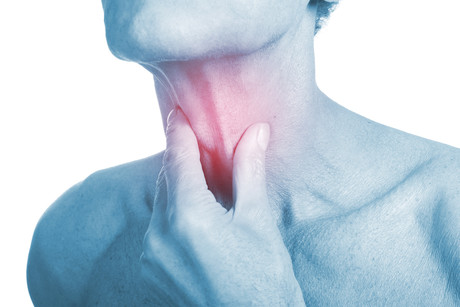Painkillers improve head, neck cancer
Friday, 01 February, 2019

Common painkillers such as aspirin and ibuprofen significantly improve the survival of at least one-third of patients with neck and head cancer.
A new study by the , in the USA, found that non-steroidal anti-inflammatory drugs, or NSAIDs, improved the overall five-year survival rate from 25 to 78% for patients whose cancer contained a specific altered gene, known as PIK3CA. The survival for patients whose gene was not altered in their tumour was unaffected by NSAID use.
This is the first study to show a strong clinical advantage of regular NSAID use for head and neck cancer patients with mutations in the PIK3CA gene and may indicate a clear, biological reason to implement NSAID therapy in certain cases of the disease, said the authors.
“Our results suggest that the use of NSAIDs could significantly improve outcomes for not only head and neck cancer patients, but also patients with other cancers that contained the PIK3CA mutation,” said Dr Jennifer Grandis, UCSF Professor of Otolaryngology and senior author of the paper.
About PIK3CA
Within head and neck squamous cell carcinoma, PIK3CA is the most commonly altered oncogene, with 34% of all tumours carrying mutations that activate the PIK3CA gene. In head and neck cancer associated with the human papillomavirus (HPV), PIK3CA is mutated in more than half of tumours.
Head and neck squamous cell carcinoma is a complex malignancy that carries a poor prognosis: the five-year survival rate is about 45%. According to the American Cancer Society, head and neck cancer accounts for approximately 4% of all cancers in the United States, with an estimated 65,000 people developing it annually.
While the disease can occur in the young, most patients are above age 50 when diagnosed. Primary risk factors include smoking, alcohol use and HPV infection.
Research overview
NSAIDs, which include over-the-counter drugs such as ibuprofen and aspirin, are known to relieve pain and reduce inflammation, fever and blood clots. They are the most frequently prescribed medication for conditions such as arthritis.
In the new research, 266 patients from the , in the USA, whose tumours were surgically removed were investigated by the study authors. The majority (84%) smoked and 67% received post-surgery chemotherapy and/or radiotherapy. Median overall survival was 66 months.
Altogether, 75 tumours (28%) in the study had an activating alteration of the PIK3CA gene.
Among the patients who regularly used NSAIDs, 93% used aspirin as a component of the NSAID regiment, and 73% took aspirin exclusively. Most of the regular users started on the aspirin therapy following their head and neck cancer diagnosis.
The investigators learned that regular use of NSAIDs for at least six months provided “markedly prolonged” improved survival compared to non-use for patients whose PIK3CA gene was mutated or amplified — in these patients, NSAIDs raised overall five-year survival from 25 to 78%. However, patients without alterations in their PIK3CA gene were no better off by taking NSAIDs.
Through analysis of both cell line and mouse studies, the researchers speculated that NSAIDs likely blocked tumour growth by reducing the production of an inflammatory molecule called prostaglandin E2.
The researchers pointed out that their results need to be corroborated in a prospective trial. Additionally, they noted limitations including the small size of the study group, as well as the type, timing and dosages of NSAIDs taken by patients.
“NSAID use likely confers a statistically and clinically significant advantage in overall survival in PIK3CA-altered head and neck cancer through direct interaction between the PI3K and COXpathways,” said Grandis, a member of the UCSF Helen Diller Family Comprehensive Cancer Center.
“Given the marked mortality of this disease,” she said, “the researchers have designed a prospective, randomised clinical trial to address the initial study’s limitations and assess the clinical significance of this therapeutic use.”
The study has been published in the .
$12m for homegrown heart disease and diabetes innovations
$12 million in federal funding has been announced for the development of new Australian-made...
National cancer screening program marks first in almost 20 years
From 1 July, the National Lung Cancer Screening Program will commence — marking the first...
Doctor deregistered after botched facelift calls for ambulance
A Queensland doctor has been deregistered after a botched cosmetic surgery procedure left a...





